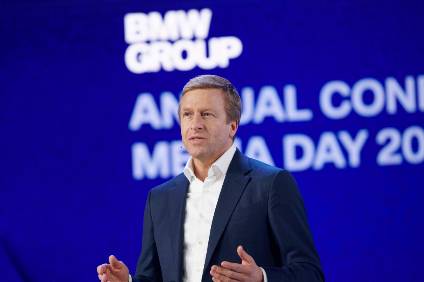
Europe’s automobile industry – as represented by ACEA – has said it is open to higher CO2 reduction targets for cars in 2030, provided that they are directly linked to binding commitments from member states to roll out the required charging points and hydrogen stations.
CEOs of Europe’s leading car makers agreed this during a recent Board meeting of the European Automobile Manufacturers’ Association (ACEA).

Discover B2B Marketing That Performs
Combine business intelligence and editorial excellence to reach engaged professionals across 36 leading media platforms.
In essence, ACEA is calling for the upcoming review of the CO2 Regulation for passenger cars and vans to be based on strict EU-wide infrastructure deployment objectives – set as part of the revision of the Alternative Fuels Infrastructure law (AFID).
“Our industry’s huge investments in alternatively-powered vehicles are paying off. Indeed, last year nearly one in 10 cars registered in the EU was electrically chargeable. But this trend can only be sustained if governments start making matching investments in infrastructure,” stressed ACEA President and CEO of BMW, Oliver Zipse. “That is why any new 2030 CO2 targets for cars must be conditional on a corresponding infrastructure ramp-up.”
ACEA said this means that there should be a link between the CO2 target on the one hand, and binding and enforceable national targets for charging points and refuelling stations on the other.
Zipse added: “We need to utilise all available drivetrain technologies to reduce the carbon footprint of our vehicle fleet. For the uptake of electric vehicles, a simple logic applies: the number of charging points and hydrogen stations that EU member states actually commit to deploy under AFID will determine what is a realistic CO2 target for 2030.”
In addition, EU member states should implement a legal framework for the rapid rollout of private charging infrastructure at home and in workplaces.
“Carmakers remain fully committed to carbon-neutral mobility and we are bringing the required technology to the market at a very high pace,” said Zipse. “But this cannot be a one-sided obligation. Success of the overarching goal of lowering the CO2 emissions of the transport sector depends fundamentally on having the right infrastructure. We count on the Commission to make the necessary link between industry targets and those of EU member states.”
ACEA maintains that at least three million public charging points for cars will be needed to meet the 2030 CO2 target of -37.5% agreed in 2019. Today there are only some 225,000 in operation in the EU, it says.






